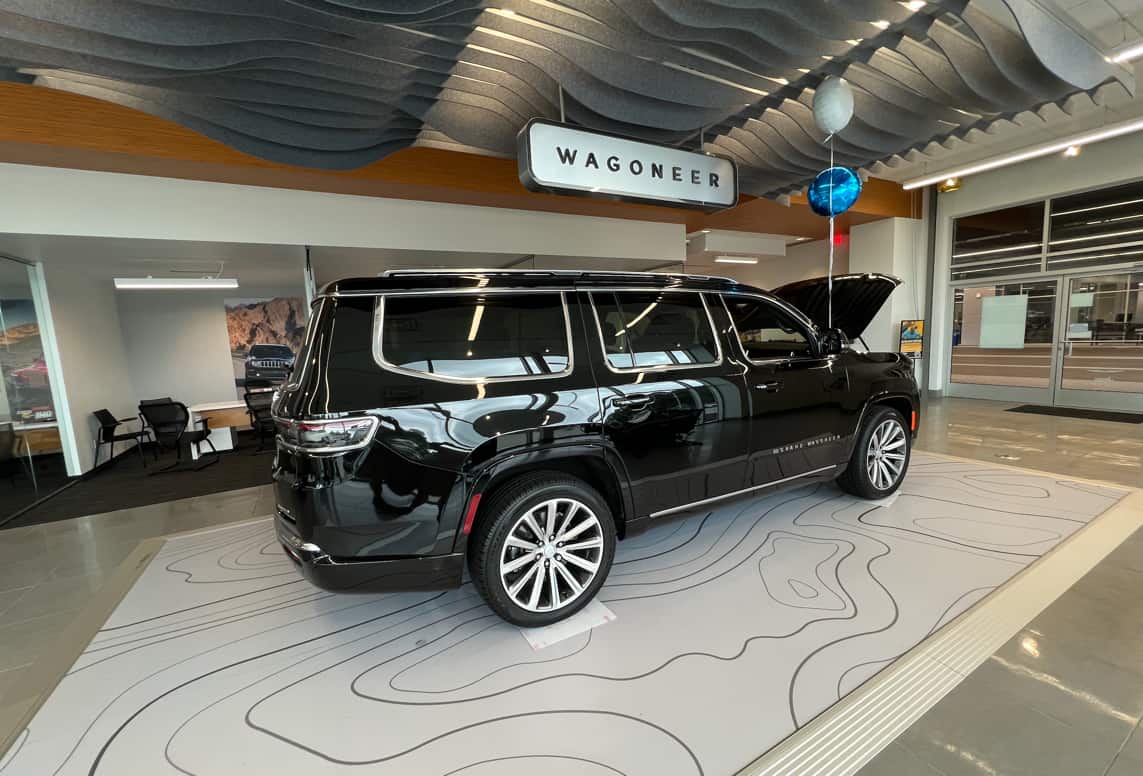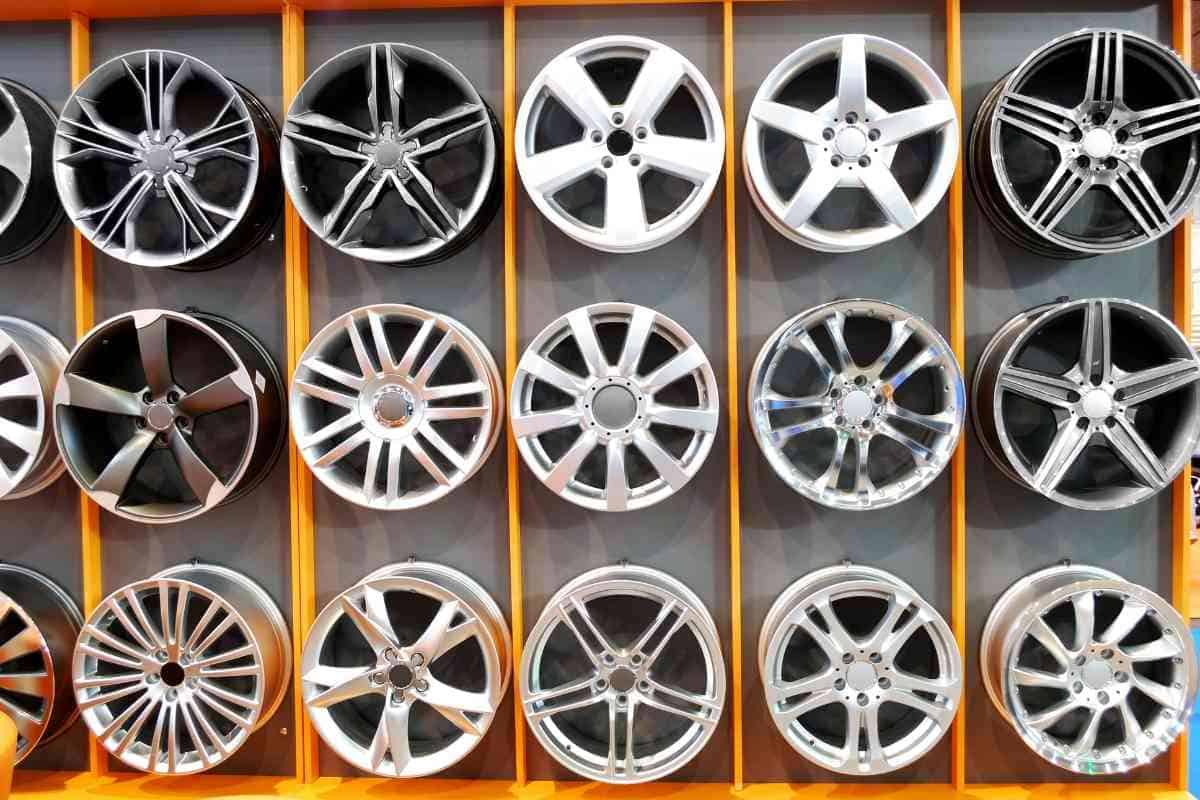Are all dealerships the same? 5 Critical Questions Answered!
As technology has progressed, buying a car online is now possible, marking a significant shift in how we buy cars. However, the dealership still exists; over time, it has had to evolve to keep up with these changes.
Moreover, buyers are becoming more well-versed in the customer service they expect from a dealership, which has sparked them to ask: Are all dealerships the same? The answer seems straightforward, but it isn’t.
Let’s dive into what makes dealerships unique, how they differ from one another, and why prices can vary.

“Drive Past Myths: Get the Real Deal on Car Buying!”
🚘 Uncover 13 Car Buying Misconceptions with Our FREE Newsletter!
Plus you will get our quick tips, expert advice, and myth-busting insights delivered straight to your inbox.
Subscribe now and make informed decisions without the detours.
“Experts Hate This! Learn the Car Buying Secrets They Don’t Want You to Know. Free Subscription!”

So, are all dealerships the same? No, it’s the total opposite. Dealerships vary considerably from location to location, and there are plenty of reasons for this. This article will cover them all.
Are all dealerships the same?
All dealerships are not the same and for many reasons. The most important aspect is the dealership type.
Some dealerships are franchisees, and others are independent. Another reason could be brand specialization, where one dealership focuses on selling one brand instead of several. It’s important to note that independent dealerships can focus on one brand, though it’s uncommon.
Let’s dive deeper into how dealerships can vary.

How do dealerships differ?
There are crucial factors that explain why dealerships differ from one another. As we said before, the main difference is the dealership type.
Franchise vs. Independent Dealerships
Specific manufacturers authorize franchise dealerships to sell their new and used (in some cases) vehicles. Independent dealerships often sell used cars and are not affiliated with any manufacturer.
As you might expect, independent dealerships might have less ample selection and could have limited financing options. Not only that, but warranties might be limited, as well.
Brand Specialization
Some dealerships focus on a single brand or partner brands. For example, your local Toyota dealership may sell Lexus and Subaru vehicles.
The benefit of a specialized dealership, whether it sells new or used cars, is that they should have more knowledge of the brand. This includes understanding common issues and more expertise during services.
On the other hand, non-specialized dealerships could offer more variety, giving you a broader option range.
New vs. Used Inventory
Some dealerships only sell used cars, which limits availability and warranties. However, this could also mean better prices.
Specialized dealerships
The market for high-end vehicles continues to grow, as do dealerships selling them. It’s now more common to find these specialized dealerships selling everything from high-end to performance sports cars.
How do you choose the right dealership?
When people ask, “are all dealerships the same?” they not only want to know about the cars. Prospective customers also want to have the best experience when buying a car.
Hence, it’s also essential to understand what makes a good dealership.
The more information we have, the more confidently we can answer the question: Are all dealerships the same?

What to look for in a dealership?
Customer service
We live in an era where customer service is vital, but not only that, we also live in times where reviews are common. Some dealerships can have a cutthroat attitude towards selling, while others prioritize a no-pressure, consultative sales approach.
Before you visit a dealership, research it on the web. Reviews are extremely useful nowadays and can help you determine whether a dealership is right for you.
Transparency and trustworthiness
If you don’t feel comfortable with the purchase at any point during your purchase, it’s best to back out. Some dealerships have created a reputation for being honest and transparent. You can find this out through reviews and asking in forums.
Pricing and Financing
It’s common for larger dealerships to have more financing options, which could benefit you as a buyer. Other dealerships have focused on the willingness to negotiate, but that doesn’t mean that one dealership does the two.
As for financing options, it’s important to note that manufacturer-affiliated dealerships sometimes offer promotional financing rates or leasing options that independent dealerships cannot.
After-Sales Services
One critical aspect of dealerships is handling the customer after the sale. Some lag behind in quality, while others excel, and the best way to research this is to go online before you make the purchase.
As you can see, the customer’s perception is crucial. After all, dealerships have earned a reputation for being shady. While this isn’t true for all of them, it has happened frequently enough for people to grow cautious. Let’s dive into why.
Are all dealerships shady?
Just as people ask, “Are all dealerships the same?” they can also ask, “Are all dealerships shady?” This is a common question because history has told us that dealerships want to sell, sell, and sell, no matter what.
Not all dealerships are shady, especially as of late. With reviews and word-of-mouth spreading so fast on the internet, being shady is harder. However, it still happens.
Why are dealerships shady?
Let’s dive into why dealerships could be shady and, most importantly, how to avoid falling into traps.
Some dealerships use pressure tactics
Shady dealerships often use high-pressure sales tactics to push customers into making decisions before they’re ready. This could include making it seem like a deal is only available for a limited time, even if that’s not the case, or pressuring customers to finance through the dealership at unfavorable terms.
If you don’t feel comfortable, remember that you can always back out. No car is worth the pressure.
Lack of transparency is a red flag
A lack of transparency is another hallmark of less reputable dealerships, especially concerning pricing and financing terms. Hidden fees, unexpected add-ons, and the manipulation of financial terms can leave customers paying much more than anticipated.
This lack of clarity is often intentional, designed to make comparisons with other dealerships more difficult and confuse buyers about their purchase’s actual cost.
If you feel there’s no transparency, ask for the “out-of-door price”, and don’t be afraid to demand transparency.
Shady dealerships could use misleading advertising
Some dealerships engage in misleading advertising practices, such as promoting deals that seem too good to be true and, in many cases, are.
Customers might be lured into the dealership with promises of low prices, high trade-in values, or special financing rates that, upon arrival, are only available to a tiny percentage of customers under particular conditions.
Dealerships can manipulate you with credit information
Shady dealerships may also misrepresent a customer’s credit situation by exaggerating the difficulty of obtaining financing or undervaluing a trade-in vehicle, suggesting it’s the best deal the customer can get due to their credit history. This is often done to justify higher interest rates or lower trade-in values.
The uninformed are easy prey for shady dealerships
Unfortunately, these dealerships often prey on the least able to afford it: the uninformed, financially vulnerable, or first-time buyers who may not be as savvy in negotiating or understanding the finer points of automotive financing. That’s why we insist on education.
Why are some dealerships shady?
The underlying reason for these practices often boils down to profit. High-pressure sales tactics, lack of transparency, and misleading advertising can all lead to higher revenues for the dealership at the expense of the consumer.
The competitive nature of car sales, combined with the significant profits that can be made from financing and add-ons, creates incentives for some dealerships to engage in these practices.
Dealerships can lie about vehicle conditions
Selling cars with hidden damage or mechanical issues without disclosing them to the buyer is a serious concern. This can lead to significant expenses and safety issues for the buyer, contributing heavily to the perception of shadiness.
Unfortunately, this is very common. If you’re buying a used car and have a mechanic you trust, you can take them for an inspection. If the dealership disagrees, this could be a red flag.
While not all dealerships engage in shady practices, those that do often rely on a combination of high-pressure sales tactics, lack of transparency, and exploitation of the uninformed. Consumers can protect themselves by researching, knowing their rights, and being prepared to walk away from a deal that doesn’t feel right.
Closing thoughts on are all dealerships the same?
Are all dealerships the same? No. Not all dealerships operate under the same standards; differences arise from factors like dealership type, brand specialization, and inventory focus.
Independent dealerships may offer a narrower selection and limited warranties. In contrast, franchise dealerships and those specializing in specific brands or high-end vehicles often provide broader options and expertise. Understanding these distinctions can help buyers choose the right dealership that matches their preferences for vehicle type, customer service, and financing options.
Critical considerations include the dealership’s commitment to customer service, transparency, pricing, financing options, and after-sales support. Buyers should research and review feedback on dealerships to ensure they engage with one that aligns with their values and expectations, thereby enhancing their purchasing experience and satisfaction with their vehicle.
Addressing concerns about dealership integrity, it’s clear that not all dealerships engage in shady practices, but those that do can significantly impact a buyer’s experience and financial well-being. High-pressure sales tactics, misleading advertising, and a lack of transparency about vehicle conditions or financial terms are red flags.
Buyers can protect themselves by being well-informed, insisting on clear information, and being prepared to seek alternatives when a dealership’s practices do not meet their standards for honesty and fairness.
